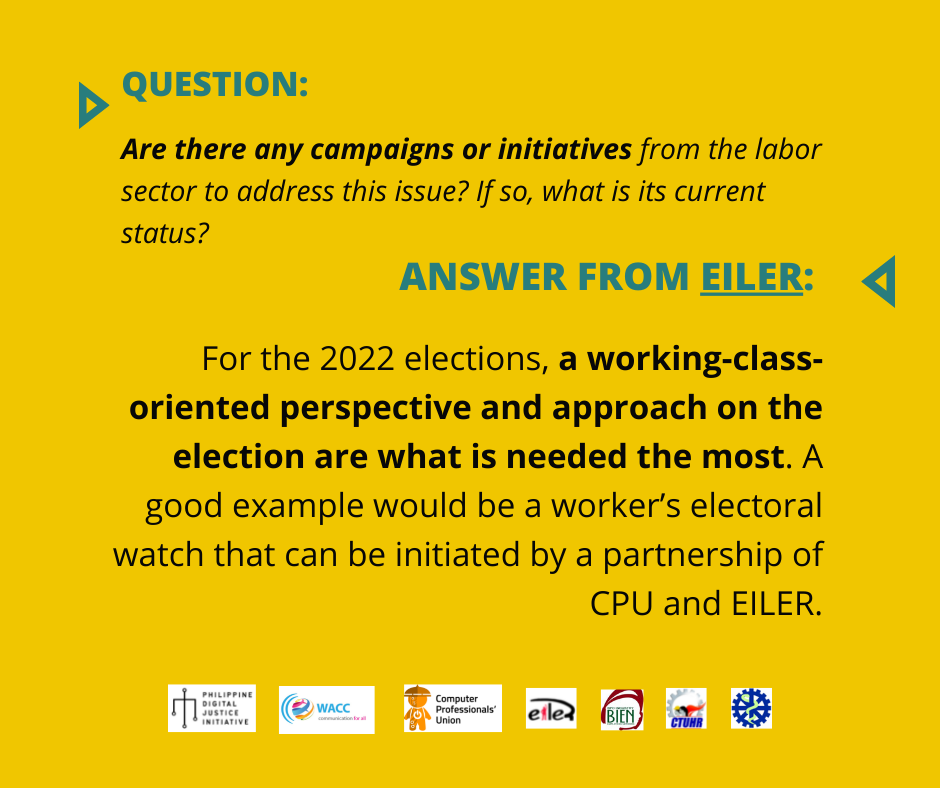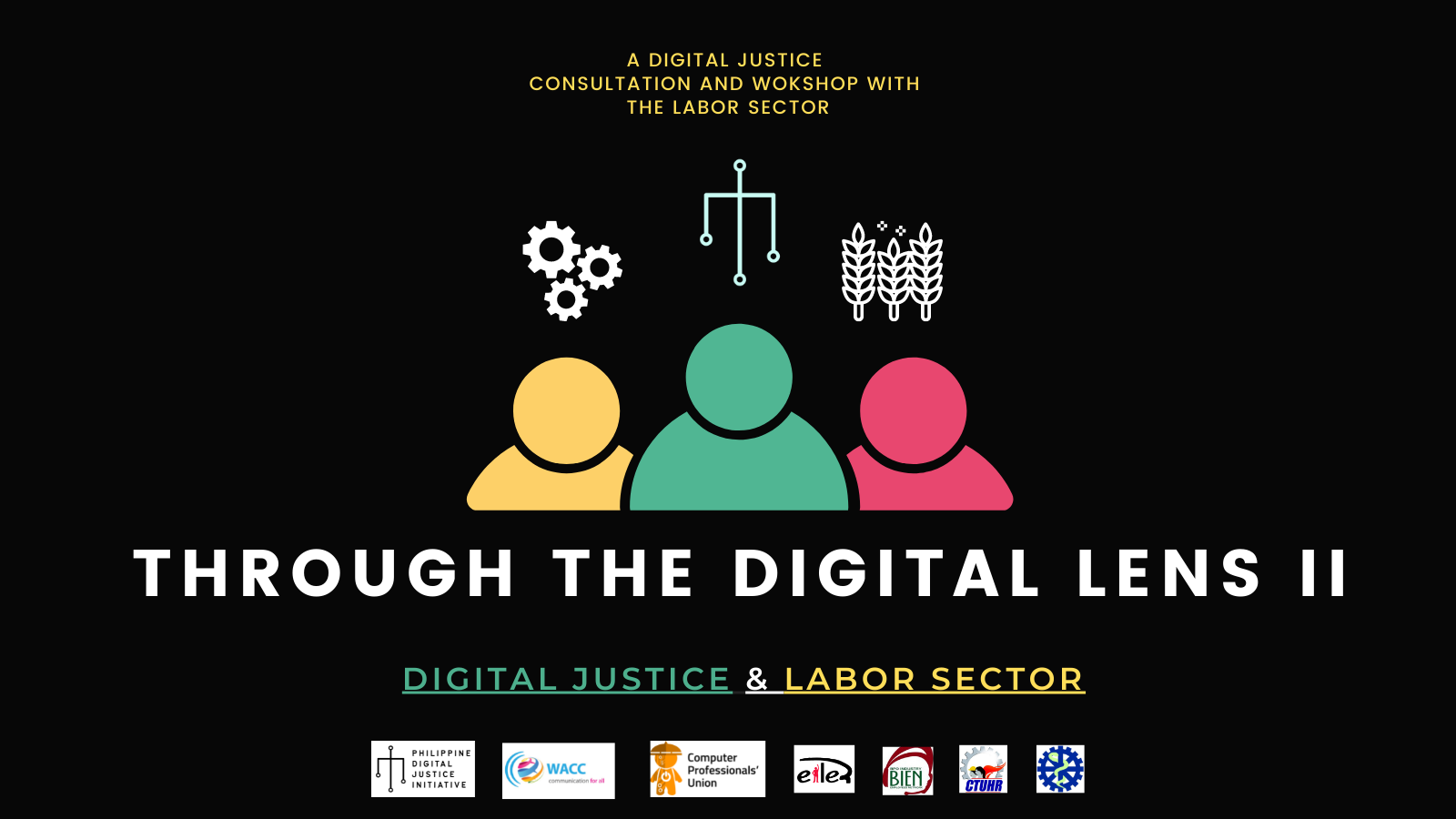Through the Digital Lens 2, held on May 22, 2021, is part of the series of consultations of the initiative aiming to gather insights, opinions, suggestions, and possible resolutions from the vital stakeholders of digitalization and betterment of the ICT ecosystem in the Philippines. In this event, the Philippine Digital Justice Initiative invited several organizations from the labor sector to answer the following pressing issues in digitalization affecting the workers:
- Technological Inaccessibility and the Digital Divide
- Precarious platform-based Work
- Hyper-surveillance
- Hijacked Democracies
Labor organizations including the Center for Trade Union and Human Rights (CTUHR), Occupational Health Safety and Development (IOHSAD), BPO Industry Employees Network (BIEN), and Ecumenical Institute for Labor Education and Research (EILER) addressed the aforementioned topics, respectively.
Technological Inaccessibility and Digital Divide
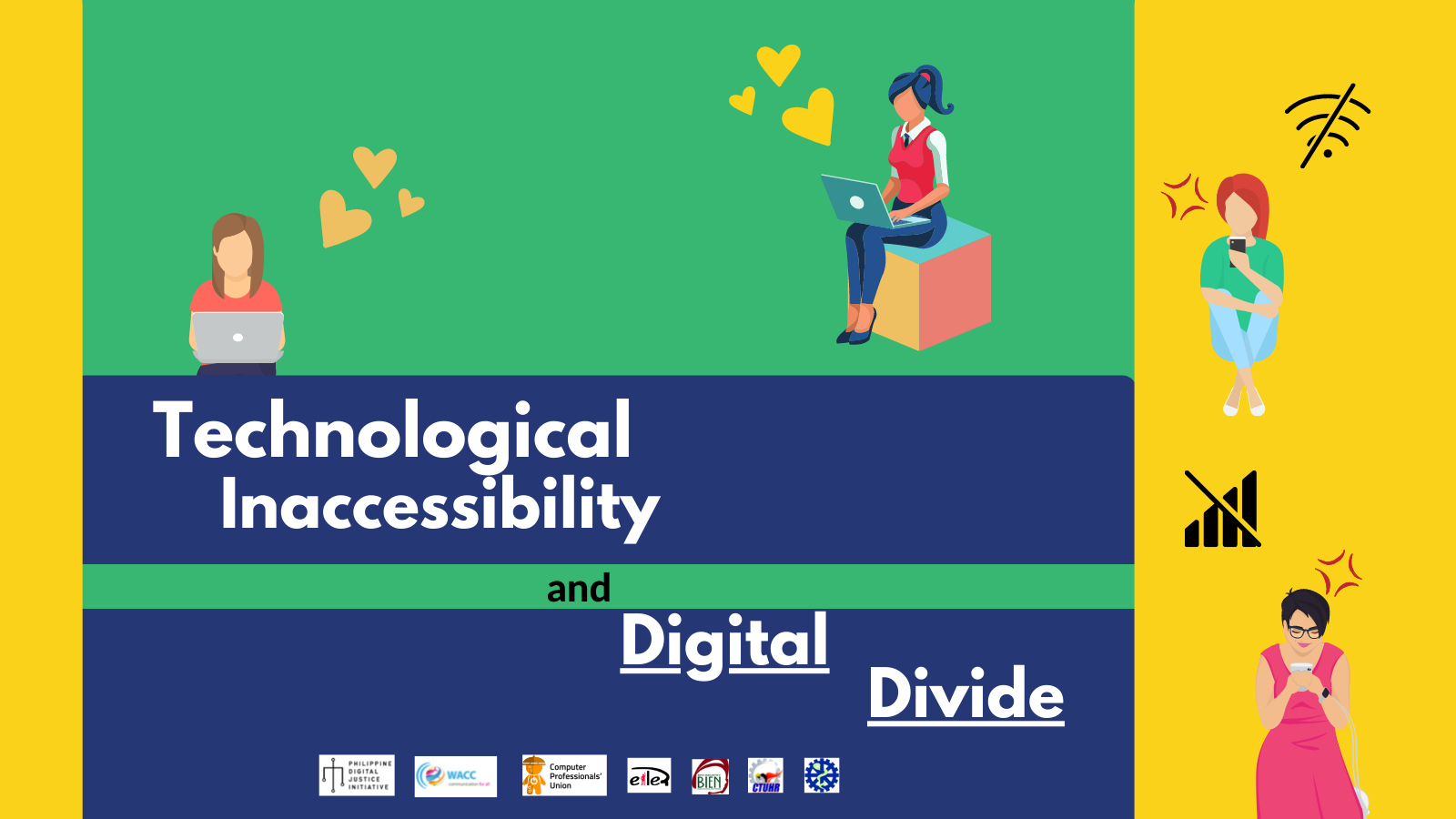
Before the pandemic, what were the issues faced by workers and the labor sector regarding inaccessibility of digital space?
A huge gap exists in terms of knowledge on the basic functions and importance of digital technologies between the workers in urban and rural areas… thus creating a dilemma on how to contextualize the importance of digital technologies in terms of rights and security and utilize it to push for workers’ rights.
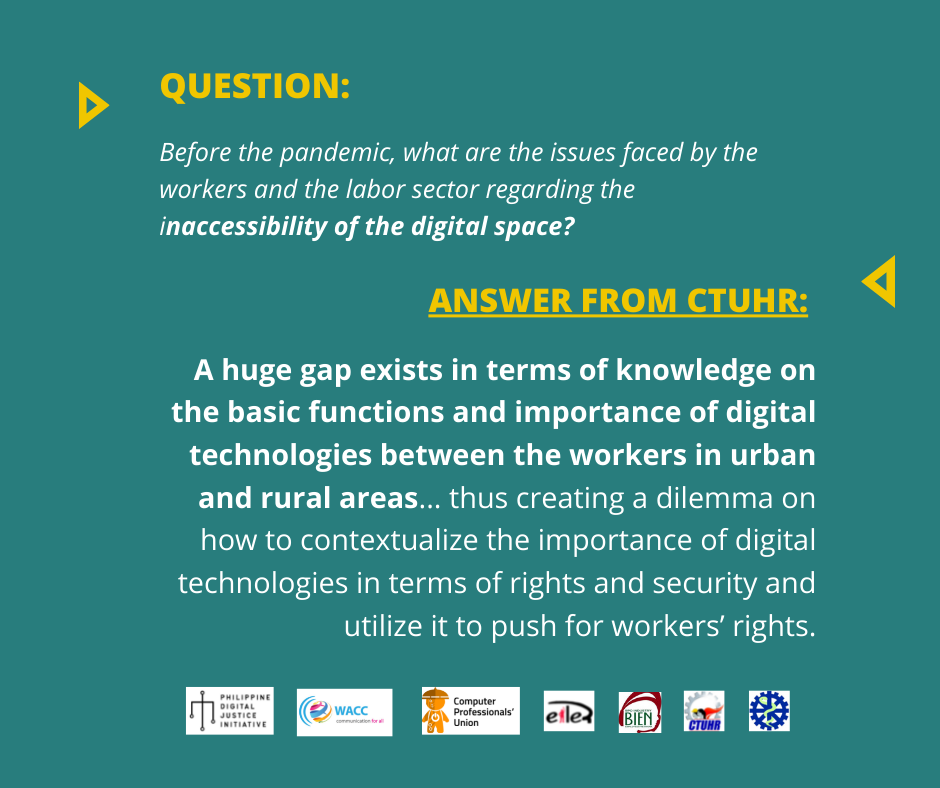
How did the COVID-19 pandemic exacerbate the problem of digital divide for the workers and the labor sector in general?
While a huge technological appreciation already exists, the COVID-19 pandemic’s change in setup made teaching and organizing workers more difficult on the part of union leaders and workers’ organizations in general. Unions often resort to text or social media to do organizational work, which technically risks and exposes their important information, and puts them at the mercy of private entities owning the digital platforms.
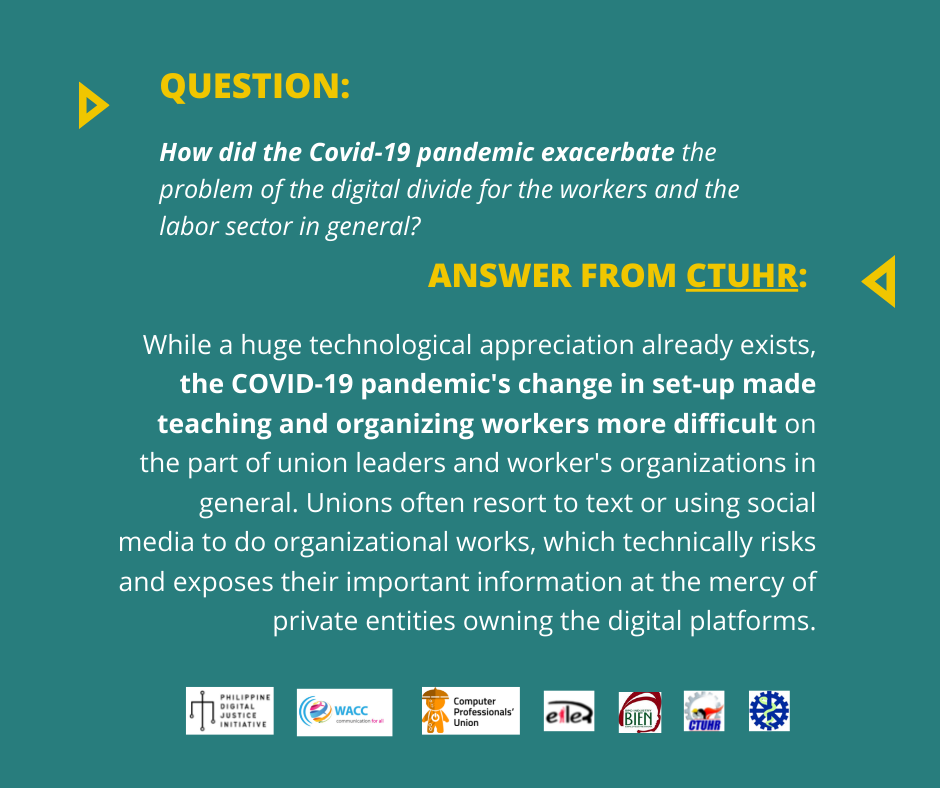
What measures, if any, have you done to address the problems of inaccessibility and the digital divide in the labor sector?
Worker’s unions and organizations teach workers how to use and maximize digital technologies as well as their role and importance in mobilization and security. However, the main hindrances in making such endeavors successful are the already poor grasp of workers in digital technologies and the programs themselves being conducted online due to the COVID-19 pandemic.
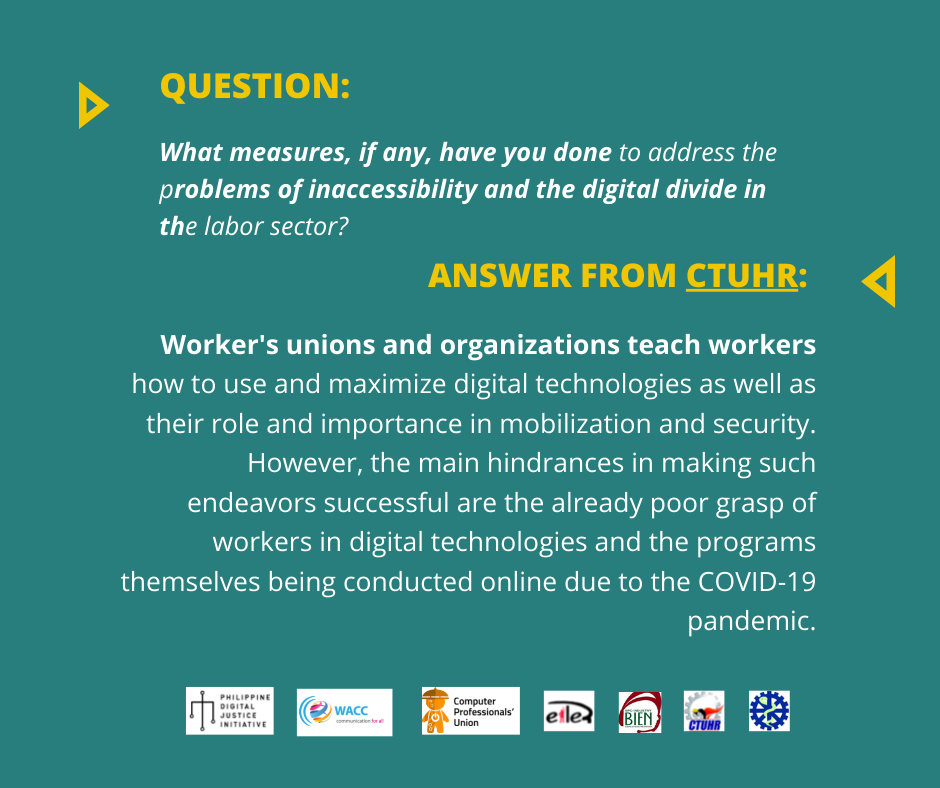
Precarious Platform-Based Work
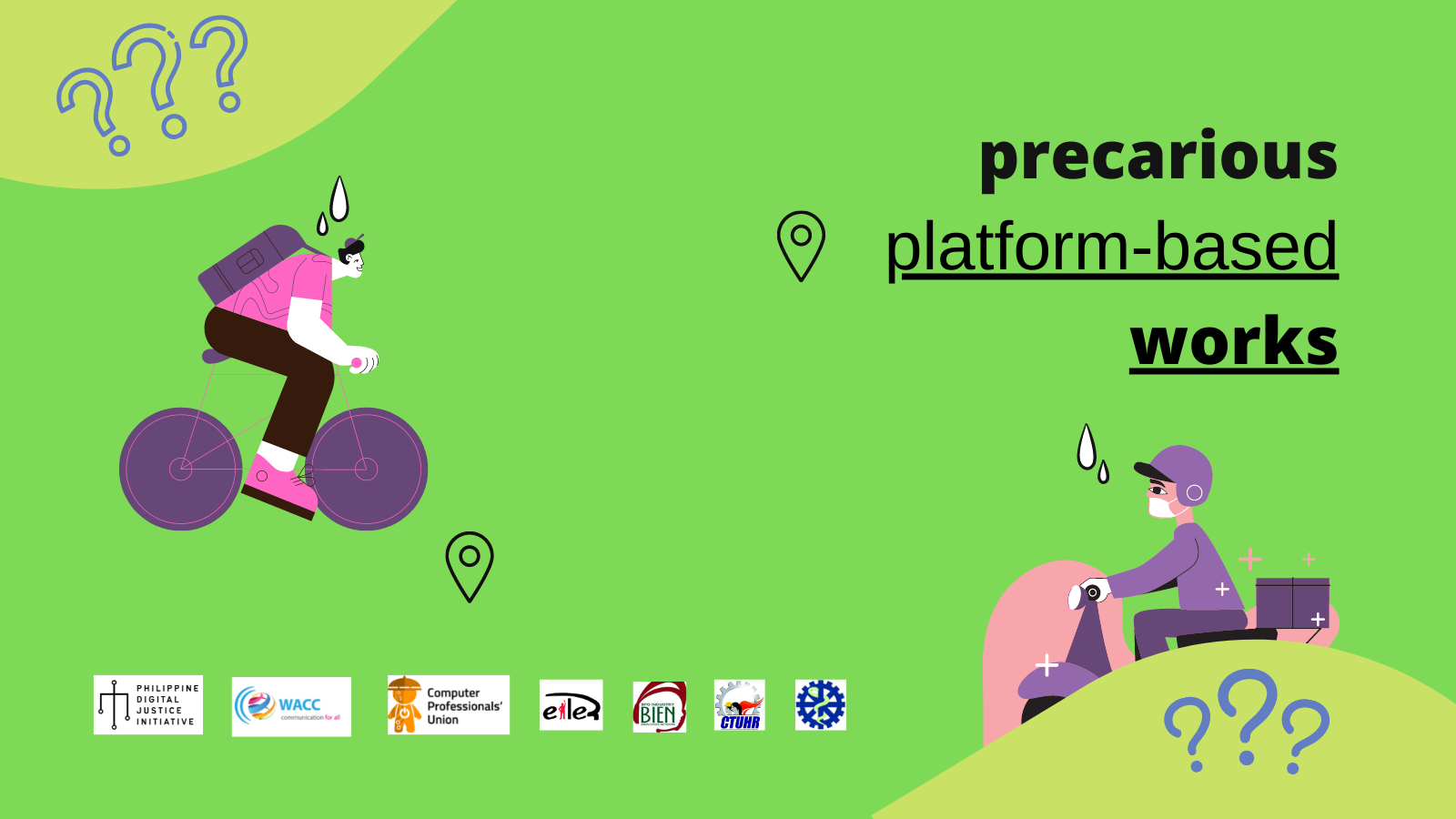
What issues do platform-based workers face regularly?
Technical issues include the inconsistent internet connection, power cuts, and difficulties in using the application (platform).
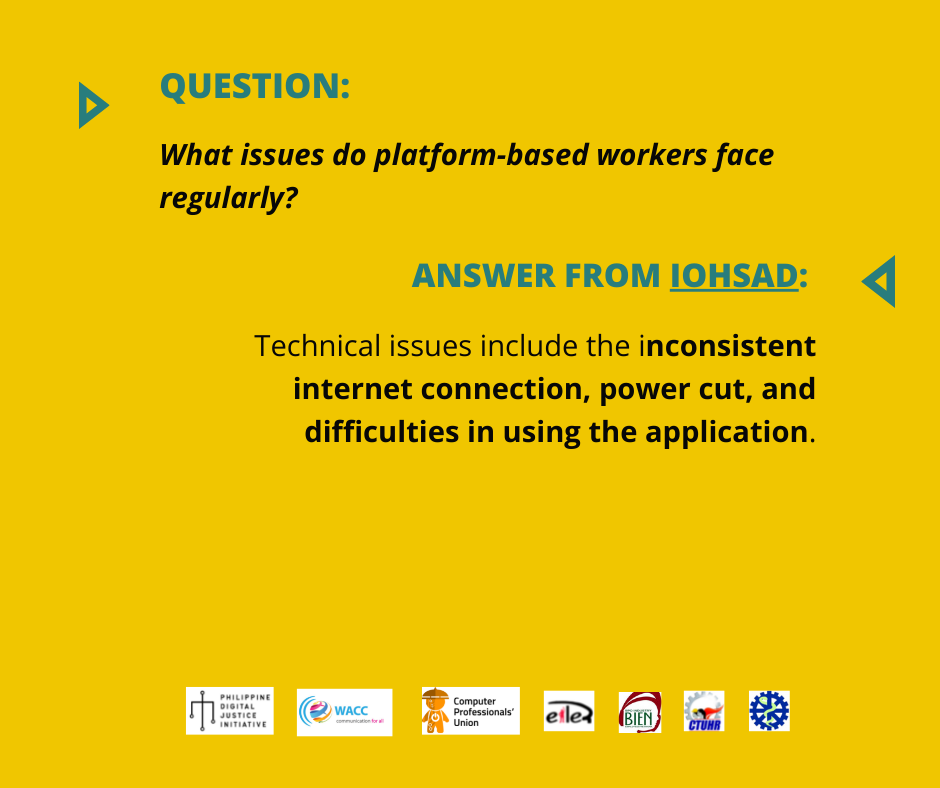
How did the COVID-19 pandemic affect their livelihood, both positively and negatively? Did the new digital platform-based work have any significant effect on their lifestyle?
On the positive side, workers were able to experience flexible working hours amid the pandemic economy and became more aware of the importance of health and safety in work. Plus, platform workers are getting more used to and exposed to the online format of communication in contrast to the offline format. However, on the negative side, workers often face the following issues: dangers in threading road traffic, inconsistent reduction of mandatory working hours to prioritize skeletal workforce, and lack of hazard pay
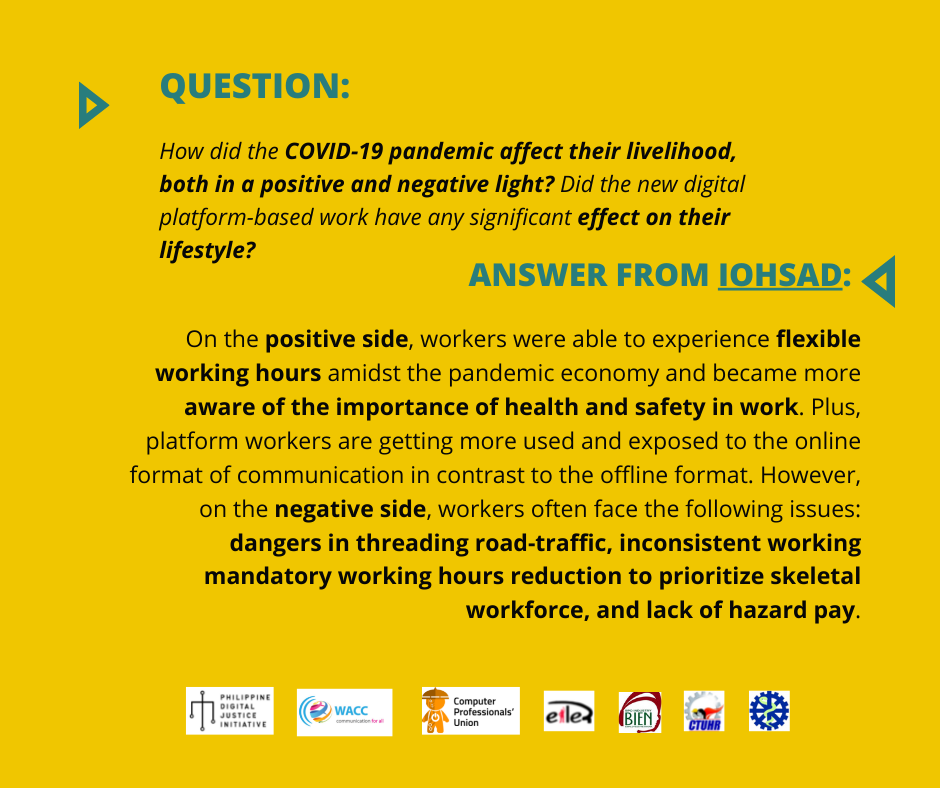
What are the current solutions proposed to address the pressing issues on plaform-based work?
(1) Improve the speed of and access to Internet connection; (2) workshops with important stakeholders involved; (3) improved and well-maintained bike lanes; (4) petition for paid pandemic leave; (5) compensability of work-from-home setup; (6) mass testing; and (7) cash assistance for the marginalized sector.
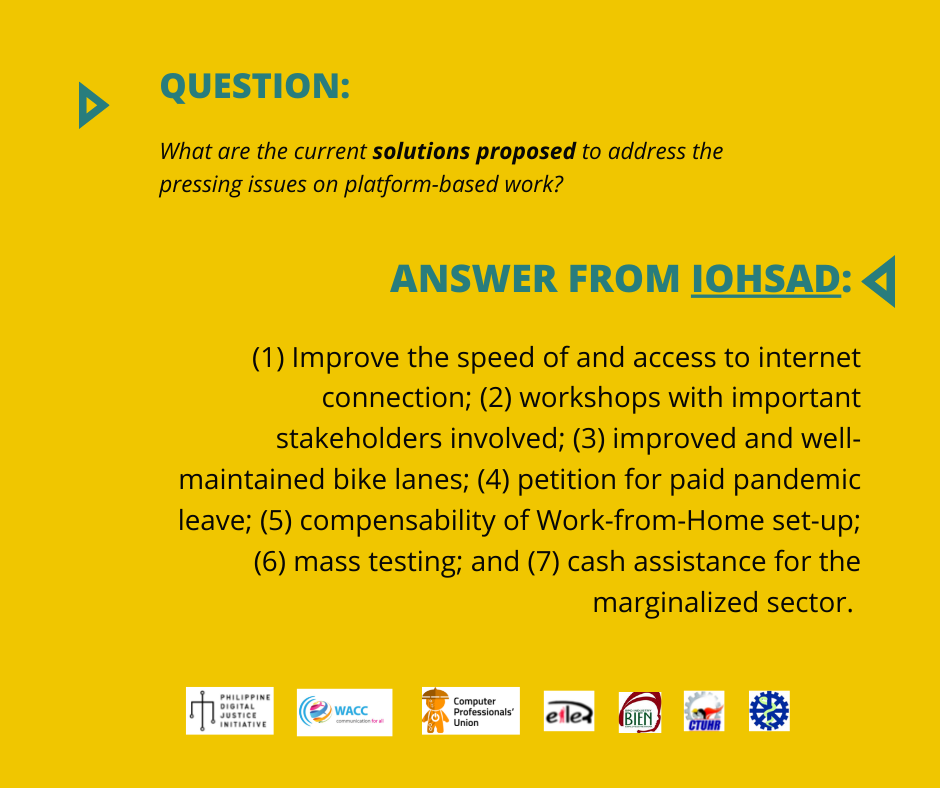
Hyper-surveillance
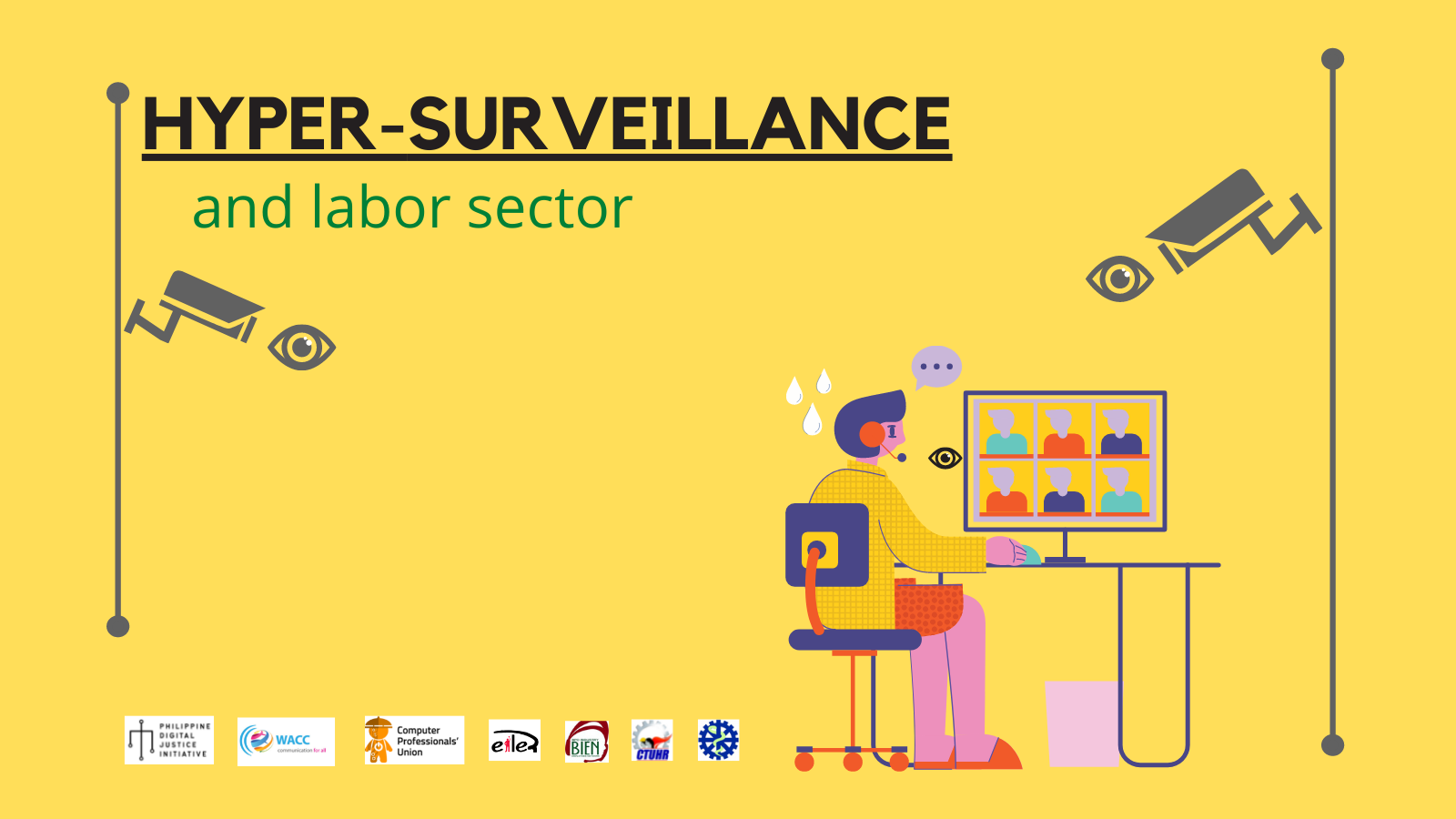
What are the pressing issues on hyper-surveillance that affect the labor sector?
Companies abuse the company domains used at work to surveil the activities of employees in BPO industries.
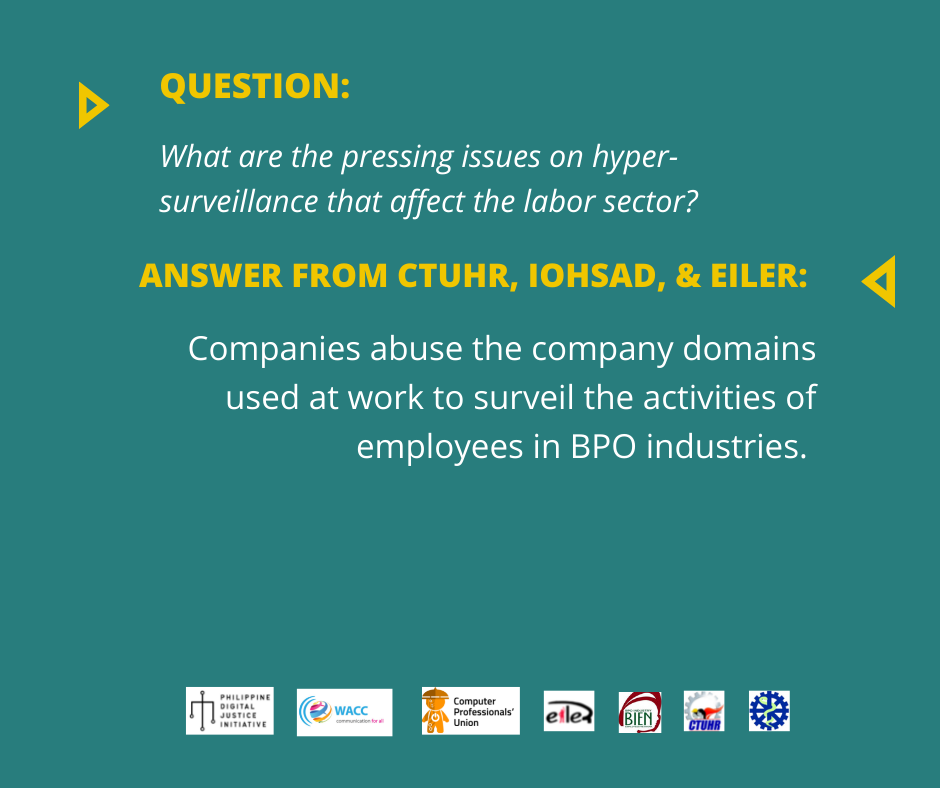
How did the COVID-19 pandemic worsen the issues of hyper-surveillance?
The pandemic rendered Filipinos to do most of the things online. Social media, which is the most widely—and to some, the only—available platform for the majority of Filipinos, are being used by companies to track the activities of workers that are deemed to be against the management (e.g. union organizations) resulting to different forms of harassment.
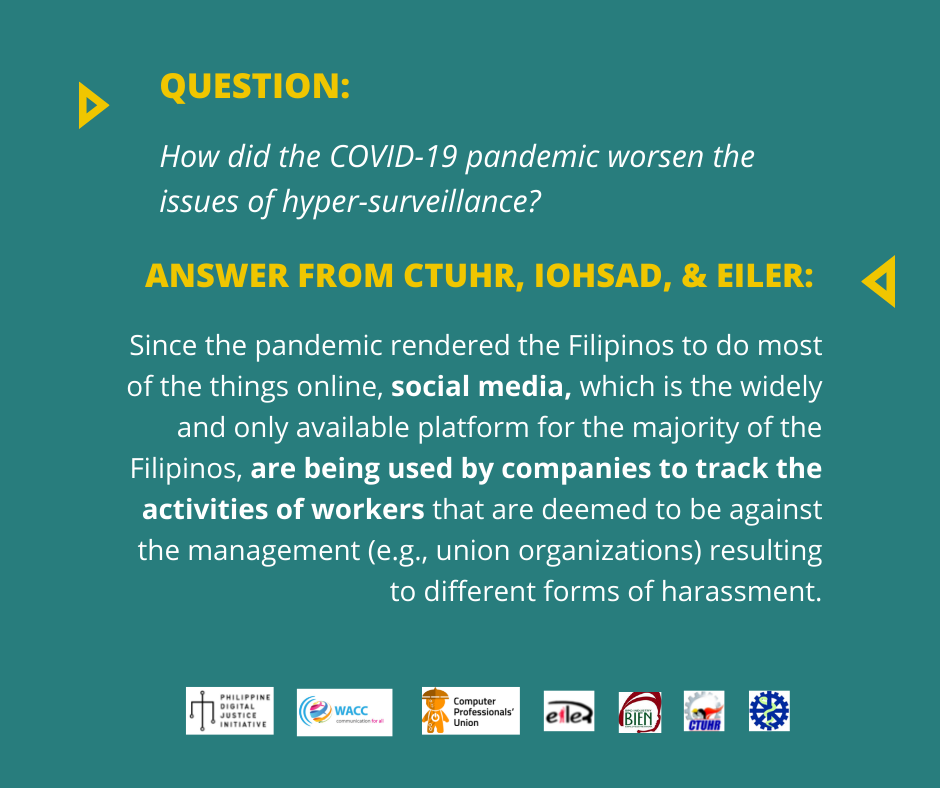
What measures, if any, have you done to change the problems of hyper-surveillance in the labor sector?
It is urgent that workers realize the importance of prioritizing how to protect themselves online, as the rapid digitalization caused by the pandemic integrates the digital more into our offline and personal space.
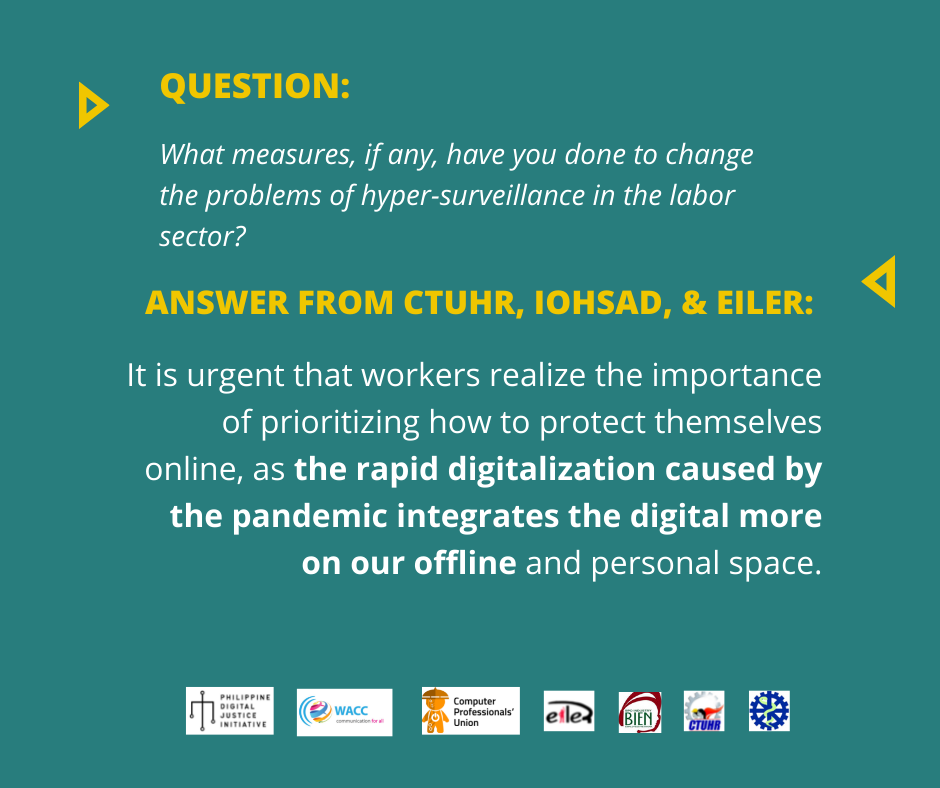
Hijacked Democracies
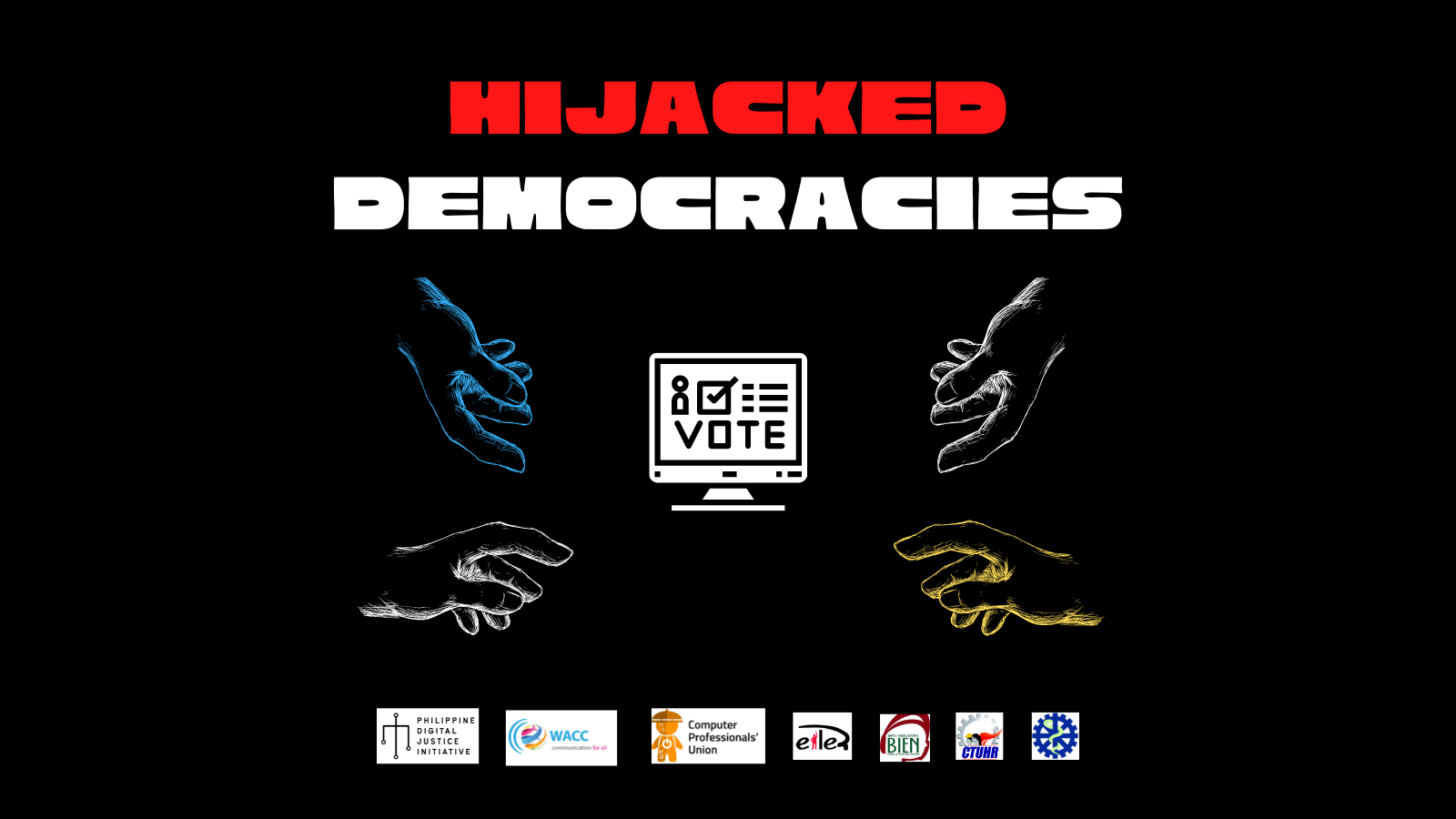
What are the current issues in the labor sector related to hijacked democracies? Are there any note-worthy patterns or cases that can be discussed?
The issue on Brexit and Cambridge Analytica demonstrated how private entities can intervene and influence the voters and the elections in general. In the Philippines, the proliferation of fake news and propaganda to favor a particular political group or agenda, which is worryingly sponsored by state funds, is the most concerning.
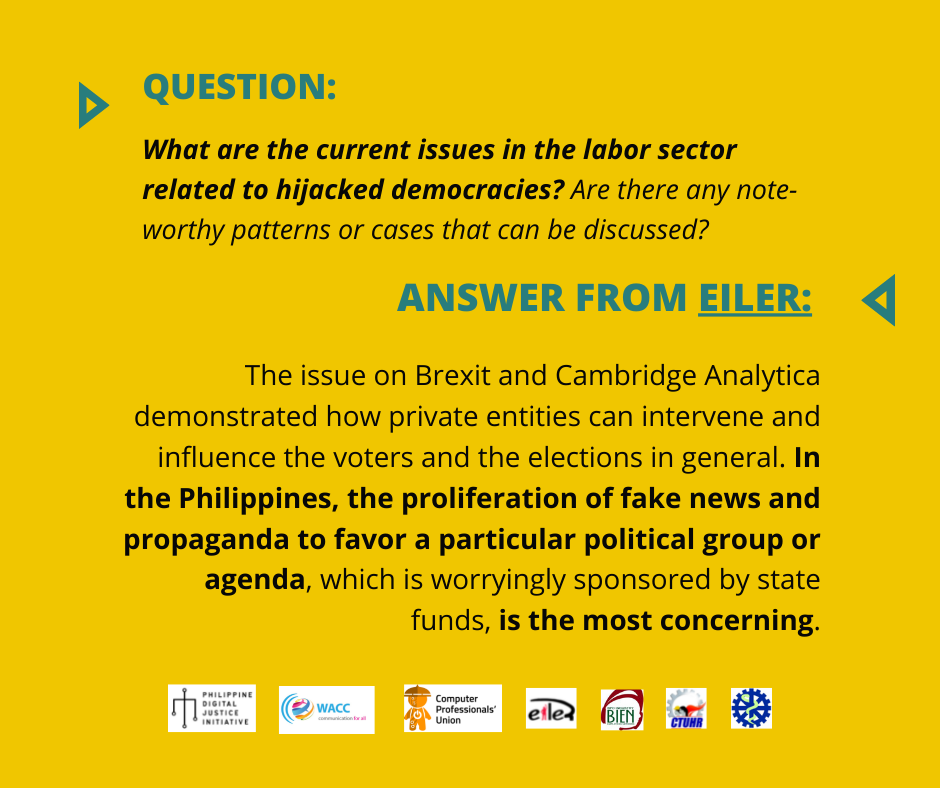
How did the COVID-19 pandemic affect the aforementioned digital issue, especially on the part of the workers?
…considering that the COVID-19 pandemic pushed everything to be done online, the election may not be an execption. Organizations should push for more transparency on the Commission on Elections especially the electoral issues they had in 2016, such as demanding third-party access on the server infrastructure and source code of the possible automated election system. The sanctity of the vote should be ensured.
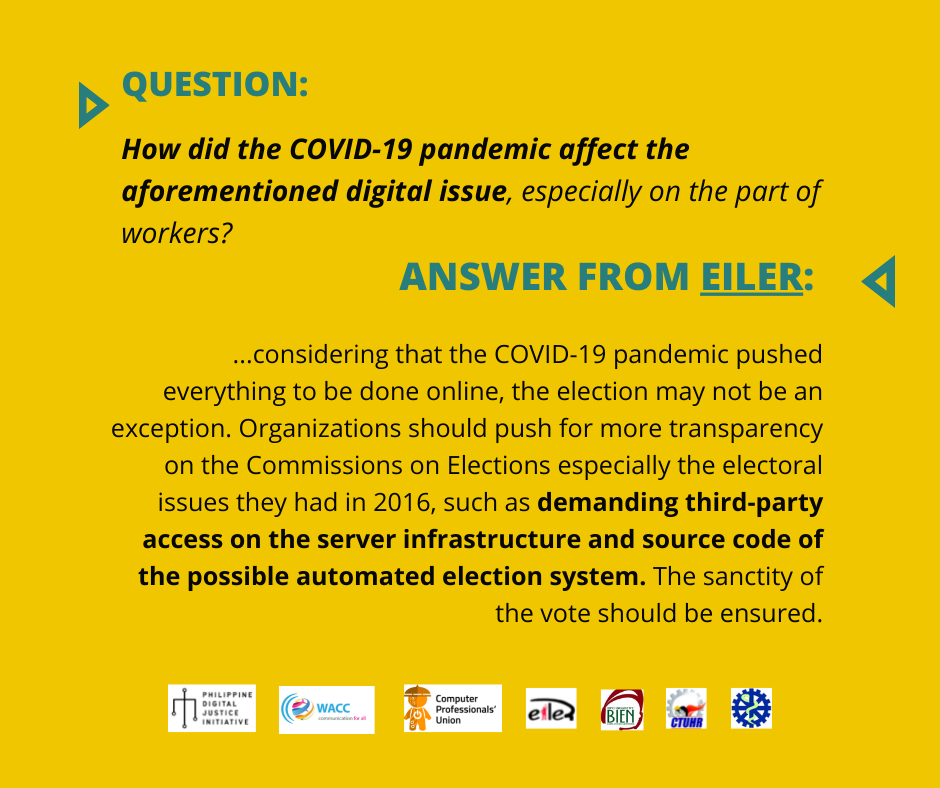
Are there any campaigns or initiatives from the labor sector to address this issue? If so, what is its current status?
For the 2022 elections, a working-class-oriented perspective and approach on the election are what is needed the most. A good example would be a worker’s electoral watch that can be initiated by a partnership of CPU and EILER.
